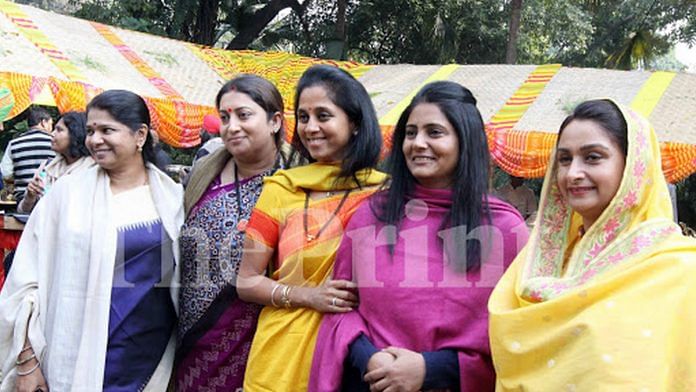For over centuries, pages of history have been filled with how men conquered lands, ruled them and made laws for them. It is a disturbing reality that women rarely find space in history books. So what exactly were women doing, why did they not make it to history books, who told these stories and how were they told? Although most of these questions might remain unanswered, we cannot deny that these stories do shape the way we think, act and create our own stories. This makes me ask, how relevant is a narrative?
Narratives have the potential to shape our understanding and manipulate us, they can perpetuate flawed ideas and influence our actions and behaviours. The usage of ‘lack’ or ‘scarcity’ every time we discuss women’s roles, power dynamics and politics reflects the narrative that we have constructed around gender stereotypes and our unconscious acceptance of the same. The language we ignorantly use has played a significant role in shaping the power structure and reinforcing it over generations.
Whenever we discuss the plight of women in politics, we talk of the ‘under-representation’ of women in politics but often fail to acknowledge the ‘over-representation’ of men in politics. In Kerala, where women outnumber men by 8.27 lakh in the electoral roll, the state legislature sees a 92 per cent representation of men. We find convenient ways to shift our attention by choosing to talk only about the 8 per cent representation of women, the reasons for under-representation, question the effectiveness of women as leaders, and discuss women’s reluctance to join politics. When election campaigns, demonstrations and mass protests see the participation of many women, what makes us believe that there aren’t enough women when it comes to positions of power? Why do we talk about ‘enabling’ women to be in politics when we never talk about ‘enabling’ men to be in politics?
Also read: Priyanka Vadra’s women-centric campaign long shot in UP. BJP must look at its male hierarchy
Women in politics
A survey conducted by ICSSR-CSDS-India Today in 1996 showed social opinion favouring increasing representation of women in politics. Irrespective of their genders, the voters supported this, and it is an endorsement of no real gender divide on increasing representation of women in politics even 25 years back. Who has been causing the obstruction for it to become a reality then?
The narrative blaming women has benefitted incumbents to maintain status quo. The narrative has the potential to limit the political participation of women and give an unfair advantage to men. Gender stereotypes are perpetuated and supported by gender imbalance prevalent in society. In a representative democracy, adequate representation is not favouring one section of society over another but the right of each element of society. Even after being a major section of society, women were and still are forced to remain marginal. It has much to do with the narrative that has been constructed to ensure subjugation. In politics, now and before, we rarely find women not because they are not capable, but most of the time, they didn’t have a chance to.
A change in narrative is imperative for bringing a more equitable political landscape. This change might seem slight, but it is significant for enhancing women’s political participation. Although the difference is nuanced, many might still find this shift in narrative uncomfortable. If this subtle change bothers us, we must realise the earlier narrative’s impact on us and how deeply it was ingrained. As a society with patriarchy micromanaging our daily lives, we are conditioned to believe that it is offensive. The shift in narrative is indispensable for the redistribution of power and enhancing the quality of life for every section of society.
Let us re-orient ourselves to look at the under-representation of women in politics as the over-representation of men in politics. The next time we talk of the under-representation of women at Lok Sabha, let’s not forget to discuss men who occupy 86 per cent of the house. A small change in narrative can bring about drastic changes in perspectives. All our efforts to increase the representation of women in politics will be in vain unless we address the issue of the over-representation of men in politics.
The author is a student at IIM Kozhikode. Views are personal.




